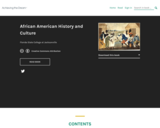
Word Count: 64008
(Note: This resource's metadata has been created automatically by reformatting and/or combining the information that the author initially provided as part of a bulk import process.)

Word Count: 64008
(Note: This resource's metadata has been created automatically by reformatting and/or combining the information that the author initially provided as part of a bulk import process.)

Word Count: 23429
(Note: This resource's metadata has been created automatically by reformatting and/or combining the information that the author initially provided as part of a bulk import process.)
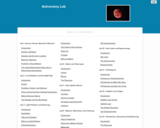
13 Labs with unique subjects. Does not include quizzes. Also available in Pressbooks (https://fscj.pressbooks.pub/astronomy/).
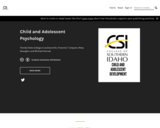
Word Count: 85398
(Note: This resource's metadata has been created automatically by reformatting and/or combining the information that the author initially provided as part of a bulk import process.)

Word Count: 73982
(Note: This resource's metadata has been created automatically by reformatting and/or combining the information that the author initially provided as part of a bulk import process.)
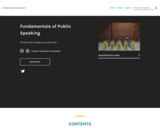
Word Count: 41556
(Note: This resource's metadata has been created automatically by reformatting and/or combining the information that the author initially provided as part of a bulk import process.)
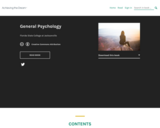
Word Count: 261089
(Note: This resource's metadata has been created automatically by reformatting and/or combining the information that the author initially provided as part of a bulk import process.)
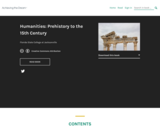
Word Count: 70882
(Note: This resource's metadata has been created automatically by reformatting and/or combining the information that the author initially provided as part of a bulk import process.)
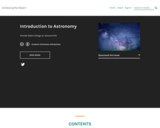
Word Count: 49379
(Note: This resource's metadata has been created automatically by reformatting and/or combining the information that the author initially provided as part of a bulk import process.)
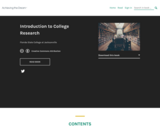
Word Count: 21993
(Note: This resource's metadata has been created automatically by reformatting and/or combining the information that the author initially provided as part of a bulk import process.)
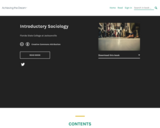
Word Count: 263584
(Note: This resource's metadata has been created automatically by reformatting and/or combining the information that the author initially provided as part of a bulk import process.)

Word Count: 13496
(Note: This resource's metadata has been created automatically by reformatting and/or combining the information that the author initially provided as part of a bulk import process.)

Word Count: 21963
(Note: This resource's metadata has been created automatically by reformatting and/or combining the information that the author initially provided as part of a bulk import process.)
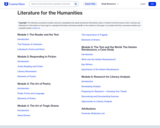
Literature in the Humanities is an introduction to the study of the characteristics, conventions, and socio-historical contexts of the major literary forms, including the analysis and interpretation of literary elements and devices, and the application of literary theory and criticism. This course is designed to encourage a deep appreciation of literature, hone critical thinking skills, and to illustrate the importance of literature as an expression of the human cultural experience.
LIT2000, as well as all Humanities General Education courses, approaches the concept of culture as a system of meanings allowing groups and individuals to give significance to the world and mediate their relationships with each other and their known universe. Humanities courses are distinguished from traditional Liberal Arts disciplines through an emphasis on interdisciplinarity and comparative cultural contexts. Through these approaches to cultural texts and artifacts, the humanities attempt to investigate, contest, analyze, and synthesize the phenomena of human agency and subjectivity both within and between cultures. By pursuing these forms of inquiry we may better understand our world and our places within it. 1
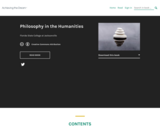
Word Count: 54231
(Note: This resource's metadata has been created automatically by reformatting and/or combining the information that the author initially provided as part of a bulk import process.)

Word Count: 37597
(Note: This resource's metadata has been created automatically by reformatting and/or combining the information that the author initially provided as part of a bulk import process.)
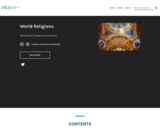
Word Count: 45461
(Note: This resource's metadata has been created automatically by reformatting and/or combining the information that the author initially provided as part of a bulk import process.)
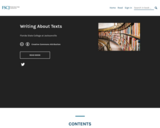
Word Count: 30273
(Note: This resource's metadata has been created automatically by reformatting and/or combining the information that the author initially provided as part of a bulk import process.)